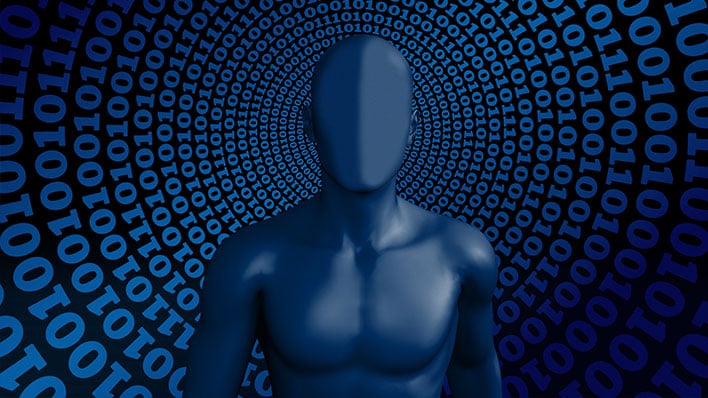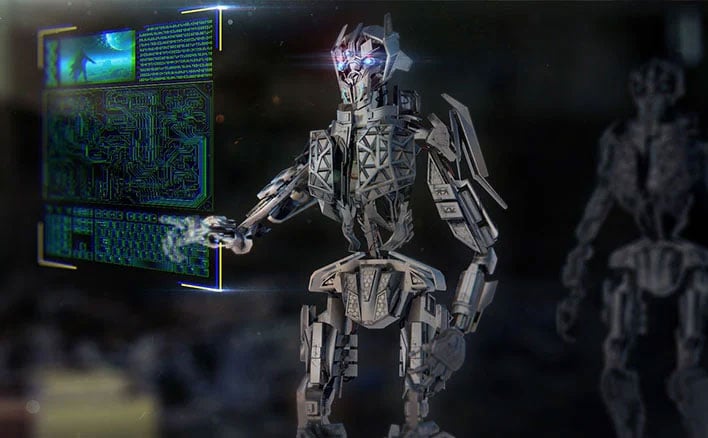Most Americans Fear AI Is A Threat To Humanity And This Poll Proves It

There's been a lot of discussion over whether the field of artificial intelligence should be regulated, and even calls by some prominent tech leaders to temporarily pause giant AI experiments so we, as flesh and blood humans, don't shoot ourselves in the foot. And if some of the biggest names in tech are concerned, then it should come as little surprise that the majority of Americans are worried as well..
That's according to a sobering poll conducted by Reuters. Out of the 4,415 adults living in the US who participated, 61 percent said they believe AI poses risks to humanity. Just 22 percent felt the opposite way, while 17 percent were unsure. Parsed another way, 78 percent of respondents either believe AI is a potential threat to humanity or are not willing to say otherwise.
What the poll doesn't make clear, however, is what respondents think those risks might be. Are we talking about Skynet-level hysteria with our robot overlords plotting human extinction? Or perhaps a continued shift in the job market where automation and AI tools are increasingly taking the place of human workers? Perhaps both or something else entirely—it's reasonable to assume that thousands of participants have different viewpoints on what constitutes a risk to humankind.
There's also a broader discussion to be had on what kind of AI we're talking about. Ion Stoica, a professor at UC Berkeley and co-founder of the AI firm Anyscale, pointed out to Reuters that "Americans may not realize how pervasive AI already is in their daily lives, both at home and at work."
To his point, many people have been using AI features for several years, whether it's pinging Siri or Google Assistant to look up directions, or relying on smartphone features to clean up photos, to name just a couple of examples. Even using a digital assistant to set a reminder or text a friend both fall under the wide umbrella of everyday AI.

Even so, AI is under a larger mainstream microscope right now because of the recent influx of AI tools and chatbots like ChatGPT and Google Bard, among others. There's a bit of an AI arms race taking place and not everyone thinks tech firms are being responsible about their roll outs. That's true even among developers who work on these projects—a recent scathing report highlighted how several Google employees who tested Bard prior to its release found it to be a "pathological liar" and "worse than useless."
There's some nuance to the AI poll results as well. For example, 70 percent of people who voted for Donald Trump in 2020 said AI poses a threat to humanity, compared to 60 percent of respondents who voted for Joe Biden. Likewise, 32 percent of Evangelical Christians strongly agree with the sentiment versus 24 percent of non-Evangelical Christians.
Those aren't massive splits, though. Either way, it's clear at this point that AI is here to stay regardless of whether there's a pause or not.

